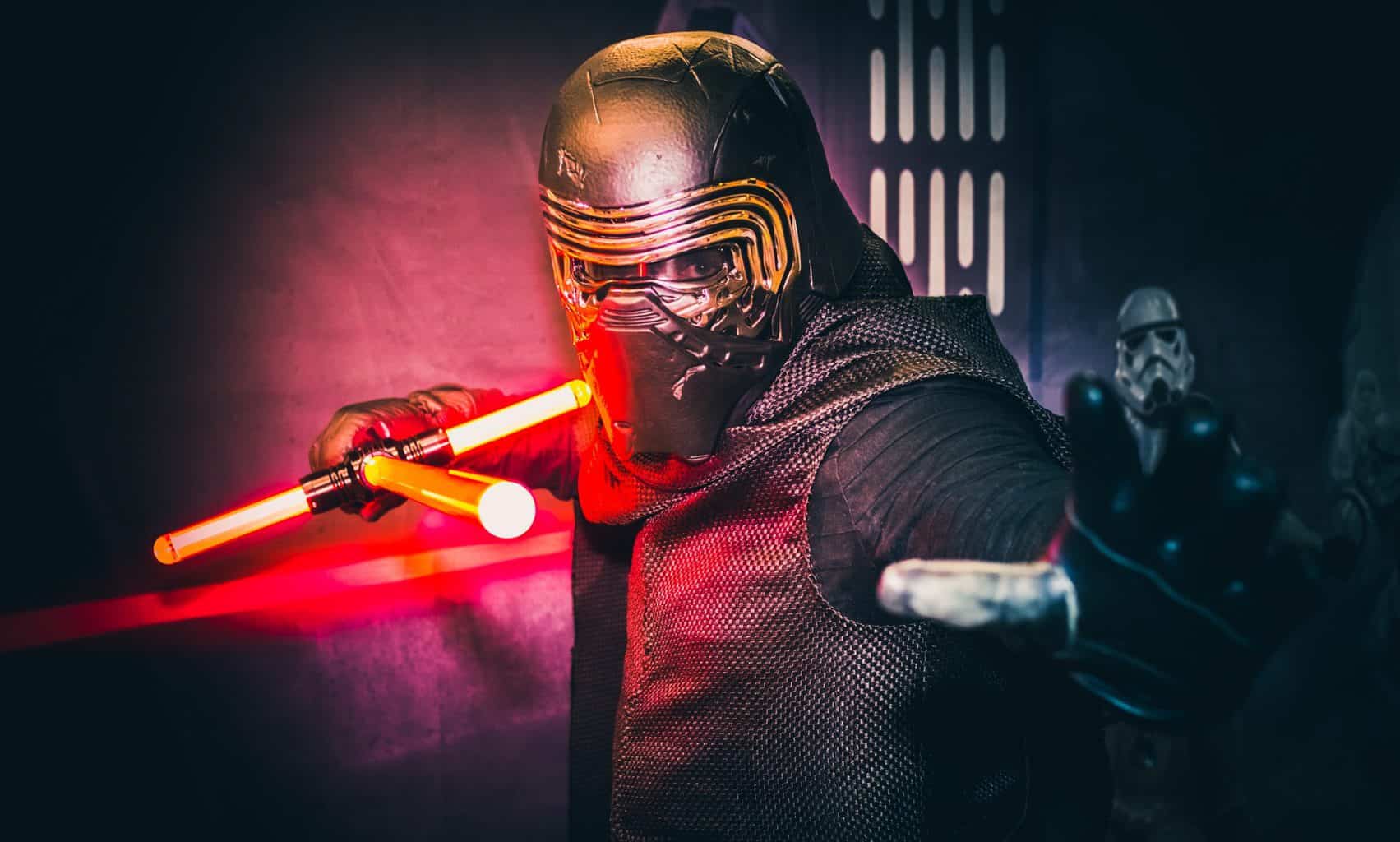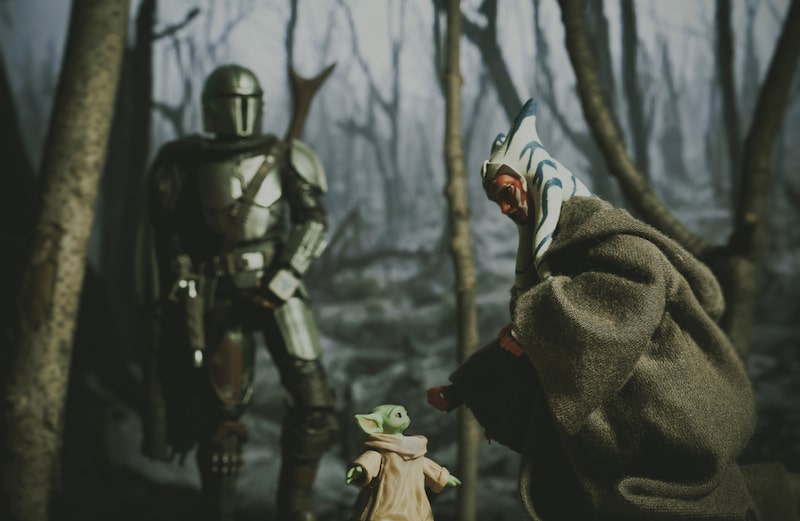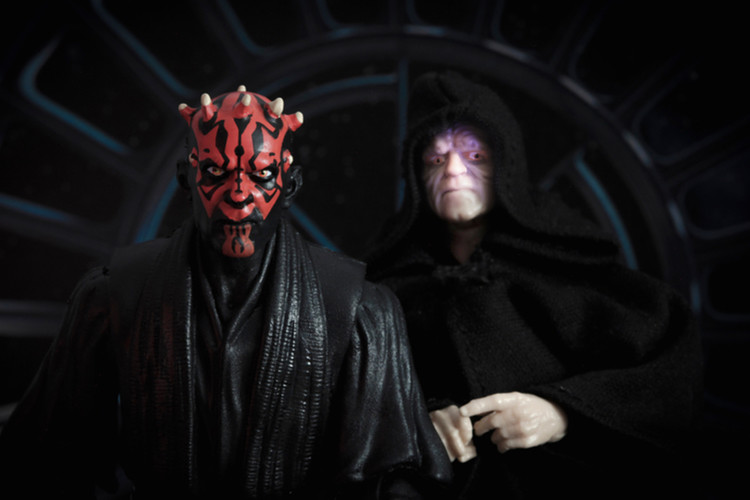In Star Wars, we know the Sith are stereotypical bad guys. But you will find thought-provoking information out there that there is more to Sith Lords than meets the eye. While the Sith are power-hungry people, it does not mean evil is a prerequisite to joining the Sith Order.
Most Sith are evil, but outliers have existed throughout Star Wars Canon and Legends. While the Sith are not good guys, it’s not set in stone that they will embrace their evil ways forever. Like some Jedi, the “good guys,” can fall to the dark side.
Does a Sith Have to be Evil?
You probably know Sith Lords derive their power from anger, hate, and rage, among other negative traits.
They often commit unspeakable atrocities, like Sheev Palpatine killing his family and Anakin Skywalker leading the 501st Legion into the Jedi Temple on Coruscant.
However, you can challenge the notion that a Sith has to be evil, despite their negative character traits.
And given some questionable tactics over the years, such as becoming militant during the Clone Wars, the Jedi aren’t exactly angels despite their display of positive traits. This is the one beauty of the Jedi vs. Sith: They are not your stereotypical Good vs. Evil trope.
Yes, the Jedi are good in the eyes of many and the Sith are evil in those same eyes. But closer examination shows the Sith, despite their atrocities, does not mean they need to commit evil deed after evil deed.
Why did the Sith form in the first place?
Because the Jedi were restraining Force-adepts in their Order from exploring the dark side. Naturally, not all headstrong Jedi restrained themselves and the only way for them to explore was to leave the Jedi Order.
And the Code of the Sith provides further evidence that a Sith doesn’t have to be evil.
What Does the Code of the Sith Say?
If you read the Code of the Sith, you may find positivity within it. The Code never says to commit atrocities or any evil act. It only shows you a path toward power.
But it doesn’t need to account for power in a political sense. The Code can provide a blueprint of how you can attain power over your own life.
The Code of the Sith states:
“Peace is a lie, there is only passion. Through passion, I gain strength. Through strength, I gain power. Through power, I gain victory. Through victory, my chains are broken.”
It doesn’t sound so evil. So what’s the catch, and why did it seem like all Sith committed evil deeds?
Why Sith Don’t Have to be Evil But Are?

We saw so much evil in Star Wars Canon or Legends that the Sith attracted Force-wielders into its ranks that sought control over others.
As powerful Force-sensitives, prospective Sith saw themselves as head and shoulders above everyone in the galaxy.
Many, like Darth Sidious, believed they had a right to rule, and they stopped at nothing to achieve their goals, even at someone else’s expense.
Even Darth Plagueis once stated, “You must see every living thing as nothing more than a tool to elevate you.”
The Sith believed they were destined to rule, they believed every being in the galaxy existed to serve them. The Sith, operating in secret, wanted to violently overthrow the Jedi and the Galactic Republic and eliminate anyone they felt stood in their way.
The Code of the Sith does not necessarily preach evil. But the kind of people drawn to the Sith made them so.
Did Any Sith Not Routinely Commit Atrocious Acts?
Count Dooku, Darth Gravid, and Darth Vectivus served as outliers in the Sith Order. For example, Gravid tried to fuse light and dark, as though looking to balance the two sides of the Force.
Vectivus was nothing more than a mining company director interested in studying the dark side. And Count Dooku’s disillusionment with the Jedi Order led him to leave. He thought that, through the Sith teachings, he could improve the state of the galaxy.
But what happened to these three outliers?
Darth Sidious betrayed Count Dooku in 19 BBY. Gravid’s apprentice, Darth Gean, caught the Sith Lord studying Jedi teachings and killed him.
Vectivus, despite his turn to the Sith, possessed a code of ethics and enough self-discipline that he did share the same hunger for power as his Sith counterparts. Before his turn to the Sith, a popular man returned to his homeworld, where family and friends welcomed him back.
Can Sith be Good Guys?
Unless they have the same restraint as Darth Vectivus, most Sith Lords venture down an evil path of no return. However, outliers existed, and Sith can be good guys if they redeem themselves and return to the light side of the Force.
Darth Vader was the first Sith to do this in the Star Wars universe. And since Vader was responsible for killing Darth Sidious and bringing balance to the Force in Return of the Jedi, his actions allowed him to denounce the Sith.
Reel Rundown makes an interesting case regarding Darth Plagueis. While Plagueis embraced the dark side and sought revenge on the Jedi Order, he took a scientific approach toward it, seeking eternal life through midi-chlorian manipulation.
In other words, Plagueis cared more about extending life than ending it.
Plagueis also held more affection toward Palpatine than most Sith Lords held toward their apprentices. The two formed a mutual bond and it was clear Plagueis never concerned himself with Palpatine betraying and killing him.
Revan is another example. While he and his friend Malak embraced the dark side, they didn’t truly fall until Sith Emperor Vitiate exerted his mind control on them. Thus, Revan and Malak became puppets to Vitiate, and the Jedi eventually rescued and retrained Revan.
Jacen Solo, known to be Kylo Ren’s counterpart in Star Wars Legends, succumbed to the dark side thanks to Lumiya. Upon his fall, Solo became Darth Caedus. Although Caedus committed some atrocities, he often balanced it with deeds involving rescuing friends.
In the Legacy of the Force Series, Jacen was led to believe the dark side would help him bring more peace to the galaxy, which turned out to be a lie. Finally, his sister, Jaina, caught up with and dueled in the climax of Invincible.
Jaina killed her brother, but not before he returned to the light side.
Was Kylo Ren a Sith Who Returned to the Light Side?

In an interview with Empire, J.J. Abrams denied that Kylo Ren was a Sith. He was the apprentice of Darth Sidious’ proxy, Snoke, who Sidious created to bring Ren to the dark side, which Snoke succeeded in doing.
However, since Snoke was not a Sith Lord, neither was Kylo Ren. Despite this, both Snoke and Ren have accomplished practitioners on the dark side.
“Kylo Ren is not a Sith,” Abrams said. “He works under Supreme Leader Snoke, a powerful figure on the Dark Side of the Force.”
You can easily mistake Ren as a Sith Lord, given his red lightsaber, name change, black robes, and his destruction of Luke Skywalker’s Jedi Temple.
It wasn’t until he lost a lightsaber duel to Rey did Ren, after sensing his mother’s death, turn to the light side, reverting to Ben Solo. After resurrecting a dead Rey, Ben sacrificed his own life by giving her his life essence.
What we can learn from Kylo Ren/Ben Solo is that not only can Sith Lords return to the light, but so can any dark side wielder. Even if they are the Supreme Leader in the galaxy, Ren eventually became.
Who are the Good Guys in Star Wars?

As for who the good guys are in Star Wars, it depends on the trilogy. While the Jedi are seen as the good guys in the entire Skywalker Saga, Star Wars Canon, and Legends, it gets complicated when you break even the Skywalker Saga down.
While they were mentioned in the Original Trilogy, it’s hard to claim the Jedi were the good guys because few of them were left. It’s also important to remember that the Sith were not mentioned in the film and few people were familiar with the term.
Therefore, in the Original Trilogy, the Rebel Alliance was the good guys, and the Empire was the bad guys.
In the Prequel Trilogy, the Jedi were the good guys. And while they had their flaws, especially since they were closely entwined with the Galactic Senate, the Jedi served the galaxy indiscriminately to preserve peace and justice.
The Jedi were also not violent people, even if they spent time commanding the Grand Army of the Republic during the Clone Wars. Something that made some in the Jedi Order, like Barriss Offee, question what they had become as an organization.
However, at their core, the Jedi could not kill unless they had no other choice. They were also not allowed to initiate force. The Jedi were also taught to fight defensively, contrasting with the Sith’s offensive fighting style.
In the Sequel Trilogy, the Jedi were once again teetering on extinction. This led to the Resistance taking the role as protagonists who opposed the Supreme Leader Snoke’s and later Kylo Ren’s First Order.
Conclusion
While most Sith committed evil deeds, the Code of the Sith did not preach evil. It only served as a guide to achieving power. And while most in the Sith Order saw that as the political power they craved, you could interpret the Code in a positive light.
Sith do not need to be evil people, and they can even redeem themselves when they commit courageous acts, like when Darth Vader and Kylo Ren betrayed Darth Sidious.

